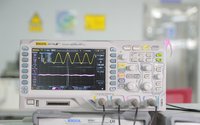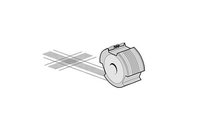What aspects does chip critical function testing include? What is the main purpose?
Date:2023-03-23 14:13:25 Views:2286
Critical functional testing of chips is usually performed during the production process, and different chip types may require different tests to ensure that the chips can work properly in accordance with the requirements in the specification.
Common chip critical function tests:
Power Consumption Test: Tests the power consumption of a chip under various workloads. This helps verify the power management functionality of the chip.
Timing Test: Tests the timing of each circuit within a chip. This helps ensure that the chip's clock and synchronization circuitry can operate as required.
Electrical Performance Test: Tests the electrical characteristics of a chip, such as voltage, current, and resistance. This helps determine the maximum operating frequency and maximum current of the chip.
Function test: Test various functions of the chip, such as memory, logic circuit, analog circuit, etc. This helps ensure that the functionality of the chip meets the requirements of the specification.
Reliability Test: Tests the reliability of a chip under various conditions, such as temperature, humidity, voltage, etc. This helps determine the lifetime and reliability of the chip.
_20230323141238_883.jpg)
Purpose of key functional testing:
Ensure the quality and reliability of the chip: Critical functional testing of the chip can detect defects and faults in the chip, and verify whether various functions of the chip are normal. Through testing, the quality and reliability of the chip can be guaranteed.
Verifying the design and manufacturing process of a chip: Critical functional testing of the chip can verify whether the design and manufacturing process of the chip is correct. If there is a problem with the test results, you can track down the specific problem, find a solution, and improve the manufacturing process.
Determine chip performance parameters: Key chip function testing can determine the maximum operating frequency, power consumption, voltage, and other performance parameters of the chip. This helps ensure that the chip meets the requirements of the specification and provides a reference for subsequent product development and production.
Reduce costs and improve efficiency: Through critical functional testing of chips, defects and failures can be detected as early as possible, avoiding unnecessary production costs and time waste. At the same time, testing can also improve production efficiency, reduce the rate of defective products, and reduce maintenance costs.
Overall, chip critical functional testing is an important step in ensuring chip quality and reliability, helping to improve production efficiency and reduce costs. Chuangxin Testing has a team of professional engineers and industry elites, and has three standardized laboratories with an area of over 1800 square meters. It can undertake various testing projects such as electronic component testing and verification, IC authenticity identification, product design and material selection, failure analysis, functional testing, factory incoming material inspection, and tape weaving.




 Weixin Service
Weixin Service

 DouYin
DouYin
 KuaiShou
KuaiShou





















